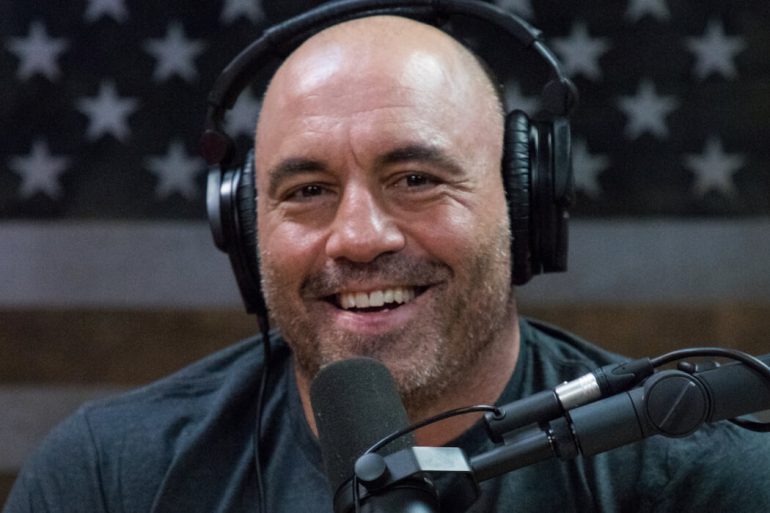Today on the podcast, we’re talking podcasting.
Wait, we’re actually talking about the responsibilities of major tech platforms. Or are they content publishers? Broadcasters?
Or, is this really just a conversation about why Spotify is sweating bullets over Neil Young’s agitation with the former host of Fear Factor?
“Has this podcast been fact-checked?”
It’s all very confused. I’ll do my best to summarize what’s going on quickly so we can get to the big questions.
If you haven’t heard, several prominent musicians have taken their music off of Spotify in protest of what we’ll broadly call COVID-19 vaccine misinformation on Joe Rogan’s podcast, the Joe Rogan Experience. It just so happens to be the biggest podcast in the world, and what The New York Times is now reporting as something Spotify paid $200 million to have exclusive rights to. Since that kerfuffle, clips of old Rogan episodes showing him using racial slurs have surfaced.
Spotify’s public response to date has been that classic Facebook line: hey, we’re just a platform, not a publisher. And Spotify CEO Daniel Ek has been reported to make multiple statements to that effect recently to employees: “we’re not in the business of dictating the discourse that these creators want to have on their shows,” and “cancelling voices is a slippery slope.”
And yet, at the same time, Spotify has quietly removed about 70 JRE episodes (at Rogan’s directive), and has put a process in motion to add some sort of advisory label to content discussing COVID-19. All of which sounds a lot like something a publisher might do.
That’s a lot, and it’s prompted a lot of conversation from tech, media, and podcasting folks. My people.
Like on the Canadaland podcast, where journalist Sandy Garossino noted that we keep having discussions of what Big Tech does with 21st Century content using 20th Century terms: broadcaster, network, publisher. Maybe we need some new terms?
It’s a great point, and the label issue is something we struggle with on this very episode as we try to unpack the responsibilities tech companies have for the content they surface (and profit from).
But there’s another side to that equation: the responsibility of the content creators themselves, which is a big deal because ‘content creator’ is only a term anyone would have started using in the last 10-15 years.
On this side, I’ll point you to something American tech journalist Kara Swisher recently said on the Pivot podcast, noting that while popular, Joe Rogan isn’t a professional interviewer, and he’s failing to meet that the high bar of responsibility a journalist would at least aim for.
I think this take is very wrong.
Listen, the challenge created by the democratization of media is that podcast hosts are not held to the standards of print or broadcast media when publishing access was limited. You currently do not have to be a journalist to have obligations and responsibilities to your audience and the content you produce.
But here’s the thing: Joe Rogan is a professional. He hosts the biggest podcast in the world, and got paid $200 million to do things like smoke weed with Elon Musk.
Saying you are ‘just a comedian, or a guy asking questions’ doesn’t cut it anymore.
But what are the professional standards of content creators? More pointedly: what if Joe Rogan doesn’t want to remove old episodes? What happens then?
To help us navigate these questions, we’ve put forward our own expert panel, featuring: Josh O’Kane – not only a technology reporter for the Globe and Mail, but the author of a book about Joel Plaskett, so you know we’ve got the CanRock covered; and Katie Jensen – owner of podcast production company Vocal Fry Studios, and someone who has made dope pod content for the CBC, MLSE, G&M, Canadaland, and many others!
It’s a power pod panel on the BetaKit Podcast! Let’s dig in.
Float is one of Canada’s fastest-growing startups, helping Canadian companies with their no-personal guarantee corporate cards and smart spend management software.
Visit Float and use the code BETAKIT and get $500 off your first $5,000 in spend!
Subscribe via: RSS, Apple Podcasts, Spotify, Stitcher, Google Podcasts.
The BetaKit Podcast is hosted by Douglas Soltys & Rob Kenedi. Edited by Kattie Laur.
Sponsored by Float. Feature image courtesy Spotify.


